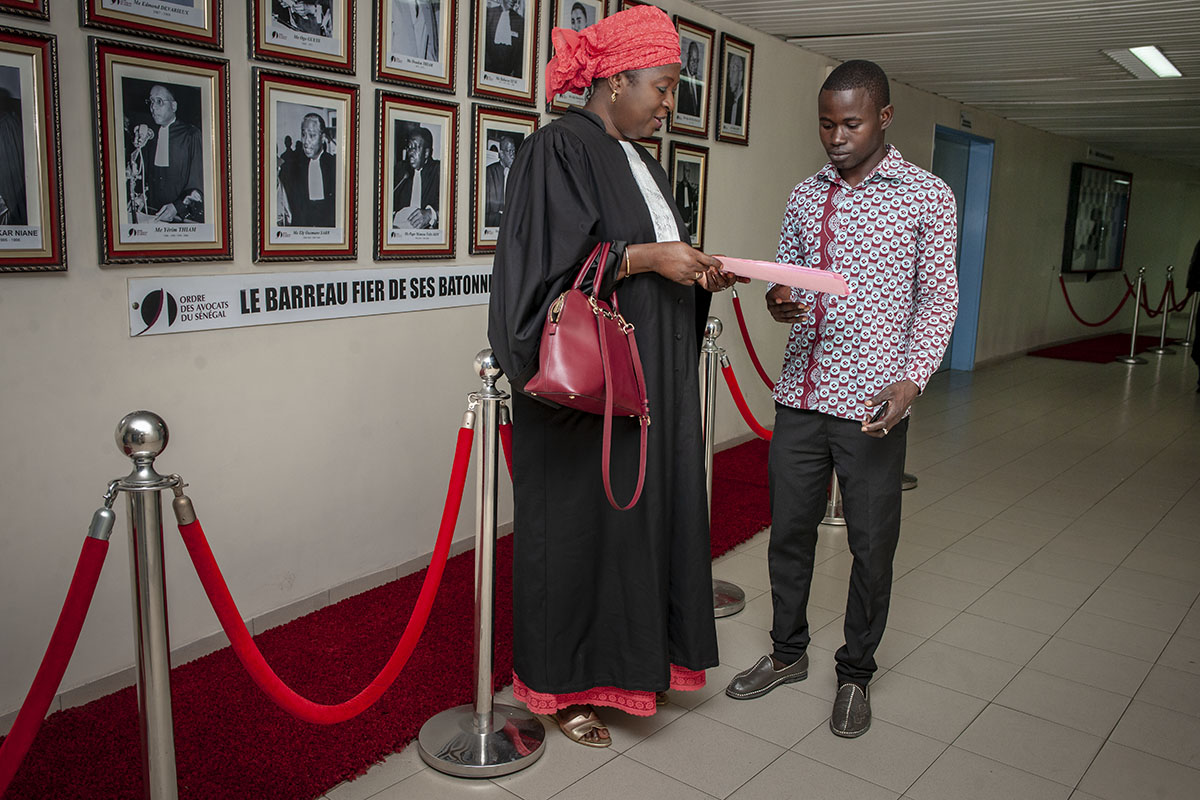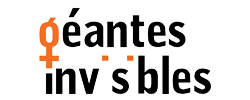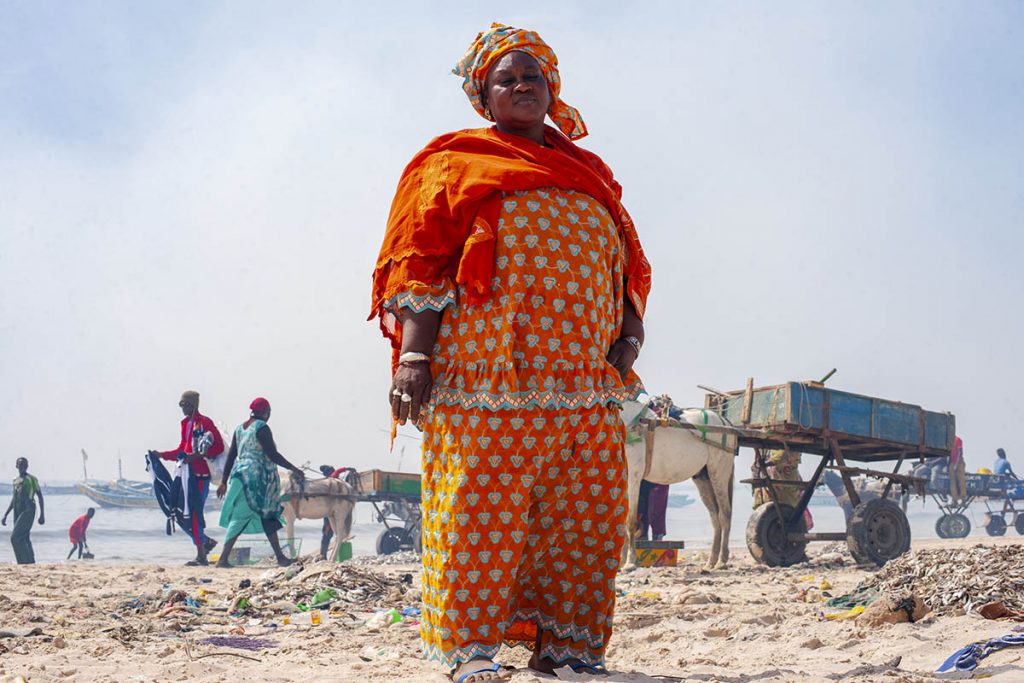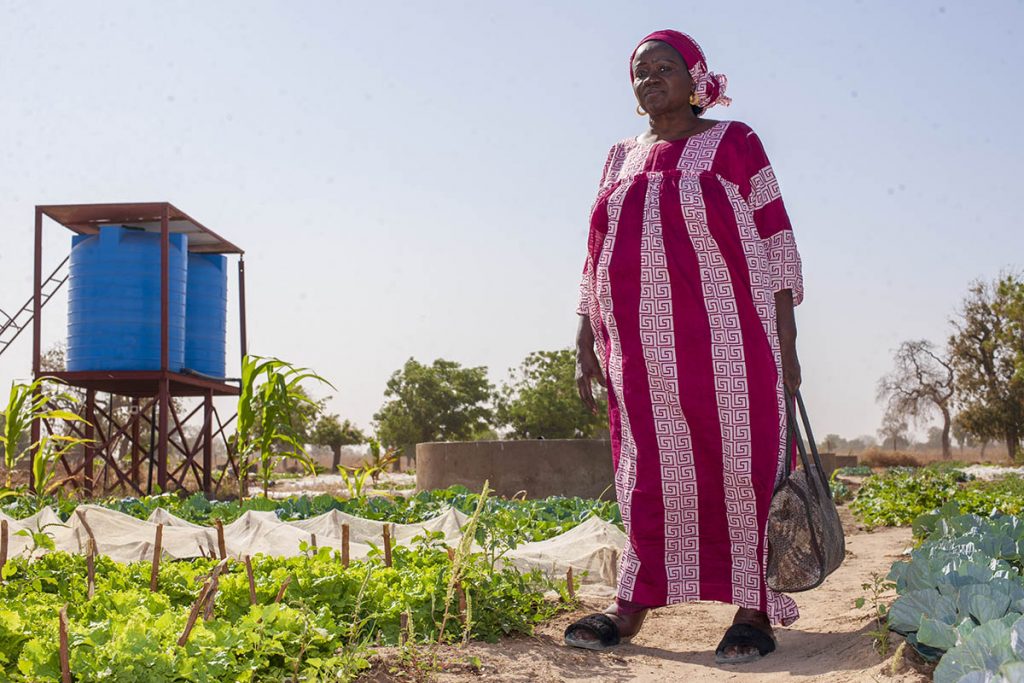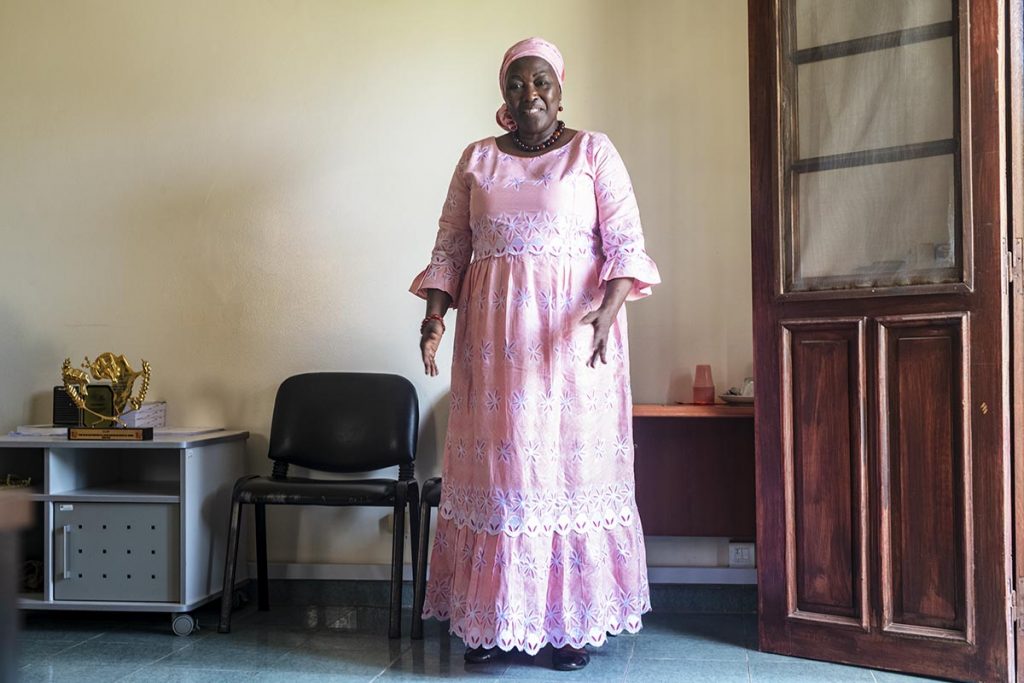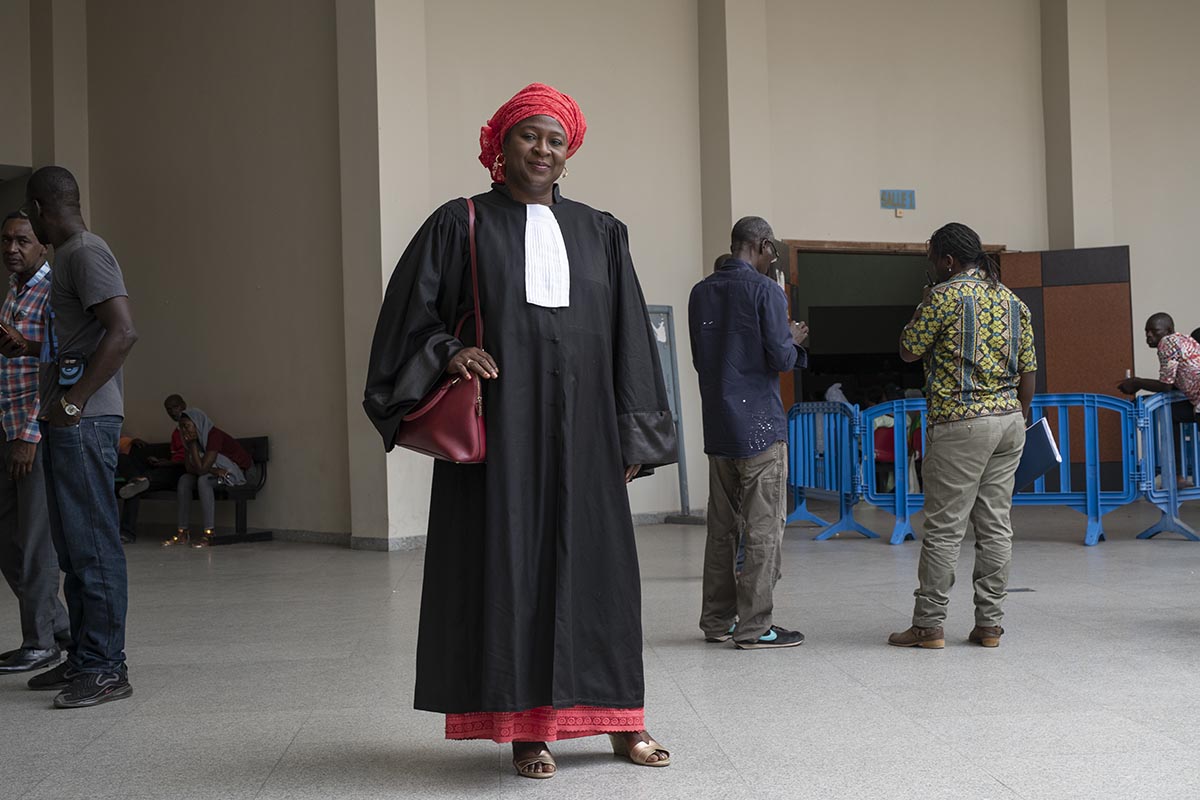
Of Tenacity and of Brio
Unassuming Giant, feminist and defender of human rights in general.
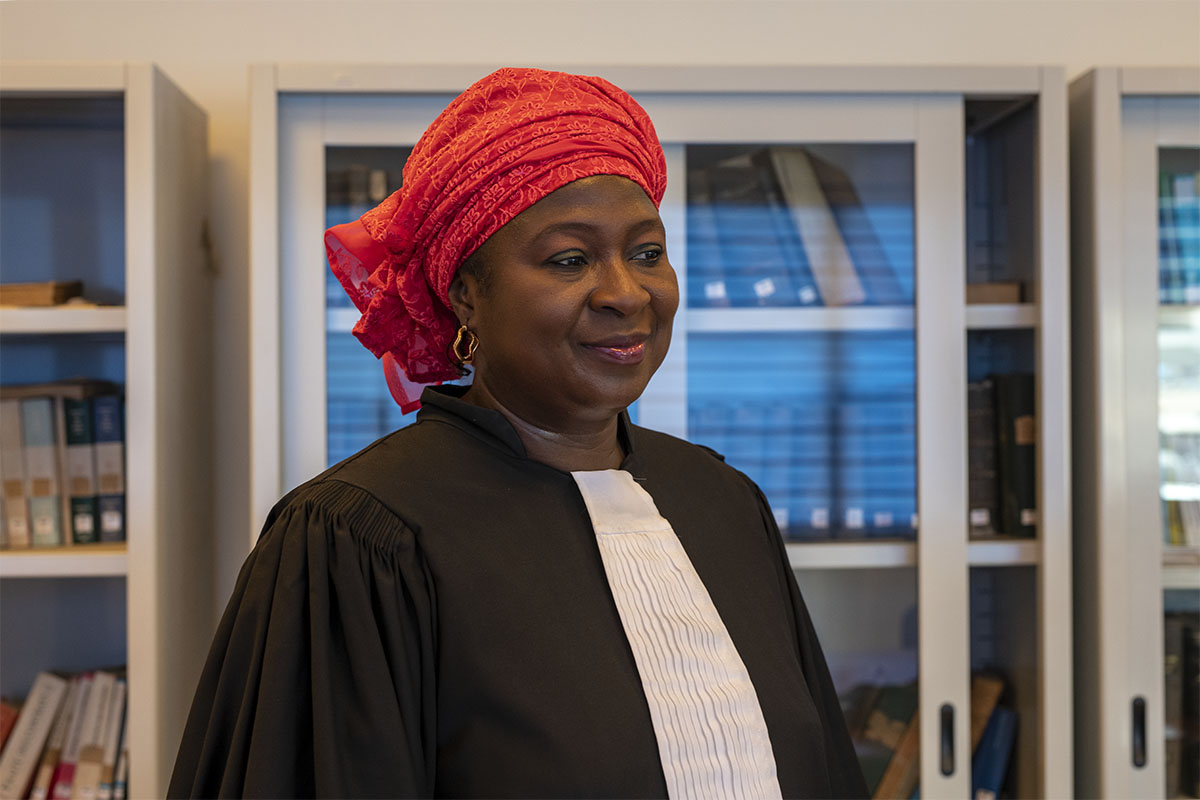
School has been the driving force behind the success of Ndèye Fatou Touré, born in Kaolack, central Senegal, in 1960, in a family of teachers. “I was a shy girl who was just working. During holidays, I had no other activity than staying at home, reading and listening to music…” Thanks to the assignments of her father, an elementary school inspector, she was able to visit the different regions of the country at a very young age. This helped to strengthen her spirit of openness, tolerance and respect for others that had already been instilled in her by her parents”.
In 1979, Ndèye Fatou was admitted to university. “I was passionate about law. Sometimes I even missed lectures for two days to attend criminal trials; and it gave me shudders…”
At the probationary test of the Bar Admission Examination in November 1984, she was the only woman out of nearly 100 candidates; she was lucky and was co-opted and chosen by the prestigious bâtonnier, head of the Bar Association, Fadilou Diop. She joined his firm as his last intern, until October 1986, one day before the birth of her eldest daughter. As a young mother, she continued her collaboration with the firm, before completing her training at Maitres Bacar Waly NDIAYE (former President of the Human Rights Commission of the United Nations), Birame Sassoum SY and Bocar LY’s law firm.
She was initiated and thus practiced business law through the litigation departments of five insurance companies and three banks.
In 1985, shortly after she was sworn in as a lawyer, Ndèye Fatou Touré opened the door into the world of law first from the Association of Senegalese Jurists (AJS), then the Association of Young Lawyers, and made her way to Amnesty International while at the same time being very interested
in the work of the Senegalese Human Rights Committee. “I am deeply feminist first of all and against all injustice, deeply committed to the protection of the rights of vulnerable individuals. I can’t help it. Whenever I am confronted with a flagrant injustice, I am deeply committed to volunteering and fixing it, regardless of the victim’s gender. So, those who really know me are always indifferent to my complaining about the servitude of my profession which sometimes imposes disproportionate sacrifices of all kinds on us”.
Upon meeting some jurist militants such as Mame Madior Boye, Dior Fall Sow, Habibatou Diallo Guèye, she developed her advocacy for human rights and individual interests. She acts as a defense counsel sometimes free of charge to provide legal assistance to people deprived before the law.
Additionally, she is part of the defense of the former mayor of Dakar, Khalifa Sall, to enforce the principle of equal treatment before the law of all litigants.
In 2007, Ndèye Fatou Touré was elected to the National Assembly as a deputy for the citizen movement “Tekki” led by Mamadou Diallo. “I then tried my best to show that a woman in politics can do even better than some men, and that she can respond, just as much to people’s problems. ” During her office term, she committed to defending the civil, economic and social rights of her fellow citizens. She relentlessly questioned some ministers and prime ministers of the republic, especially those in charge of energy, sanitation and rural development, economy and finance, etc. during the five years she served at the National Assembly, by undertaking documents research herself by her own means and by training in financial and budgetary matters, among others.
She acted just the same during the floods in the suburbs by photographing, day by day, areas of the most affected municipalities, leaving her role as a jurist to strengthen her expertise on technical issues. Her goal was to ensure the control of public policies carried out by the executive on behalf of the population. She has also monitored human rights abuses, for example, by dealing with prison overcrowding. She reached out, in particular, to the Minister of Justice after a tour to the penal institutions of five regions, to solve cases of excessive pre-trial detention.
When she went into politics, she wanted the specificity of women to be taken into account, in particular in sectoral public policy budgets. After five years, however, she preferred to return to her professional life because the political battles were taking her away from her goal of being in the service of asserting people’s rights, which needed to be better guaranteed by standards that are sufficiently protective, better respected through unequivocal measures, and effectively achieved.
Ndèye Fatou collected numerous certificates in International Human Rights Law (IHRL), International Humanitarian Law (IHL) and International Criminal Law (ICP). She holds six certificates awarded by the International Institute for Human Rights in Strasbourg, Foundation René Cassin, the United Nations Peacekeeping Centre, the International Association of Civilian Peacekeepers, the United Nations Peacekeeping Defense Lawyers (ICDAA), and is equipped to intervene for three years within African judicial mechanisms for human rights advocacy as a member in the list of International Criminal Law (ICP) lawyers.
